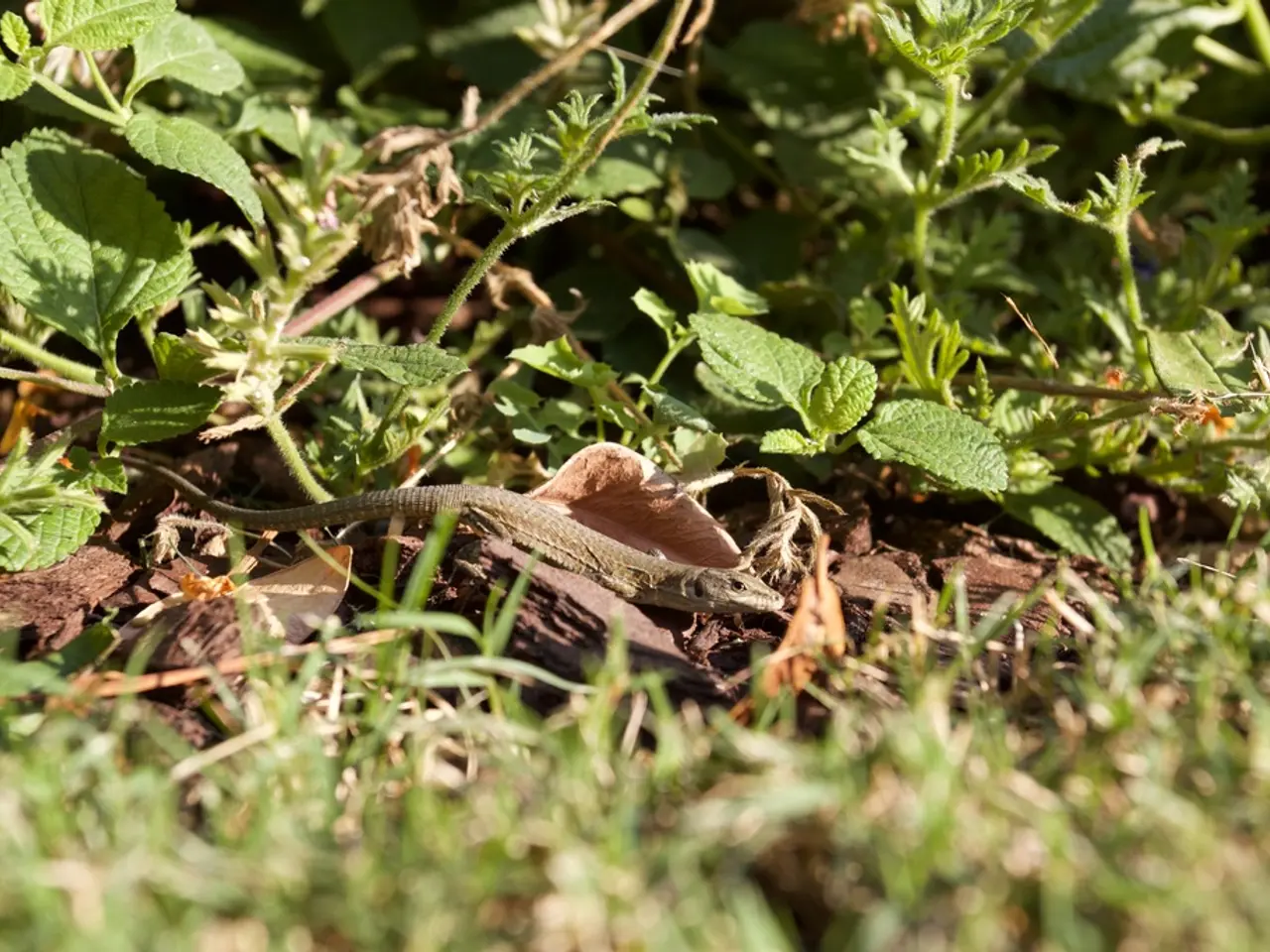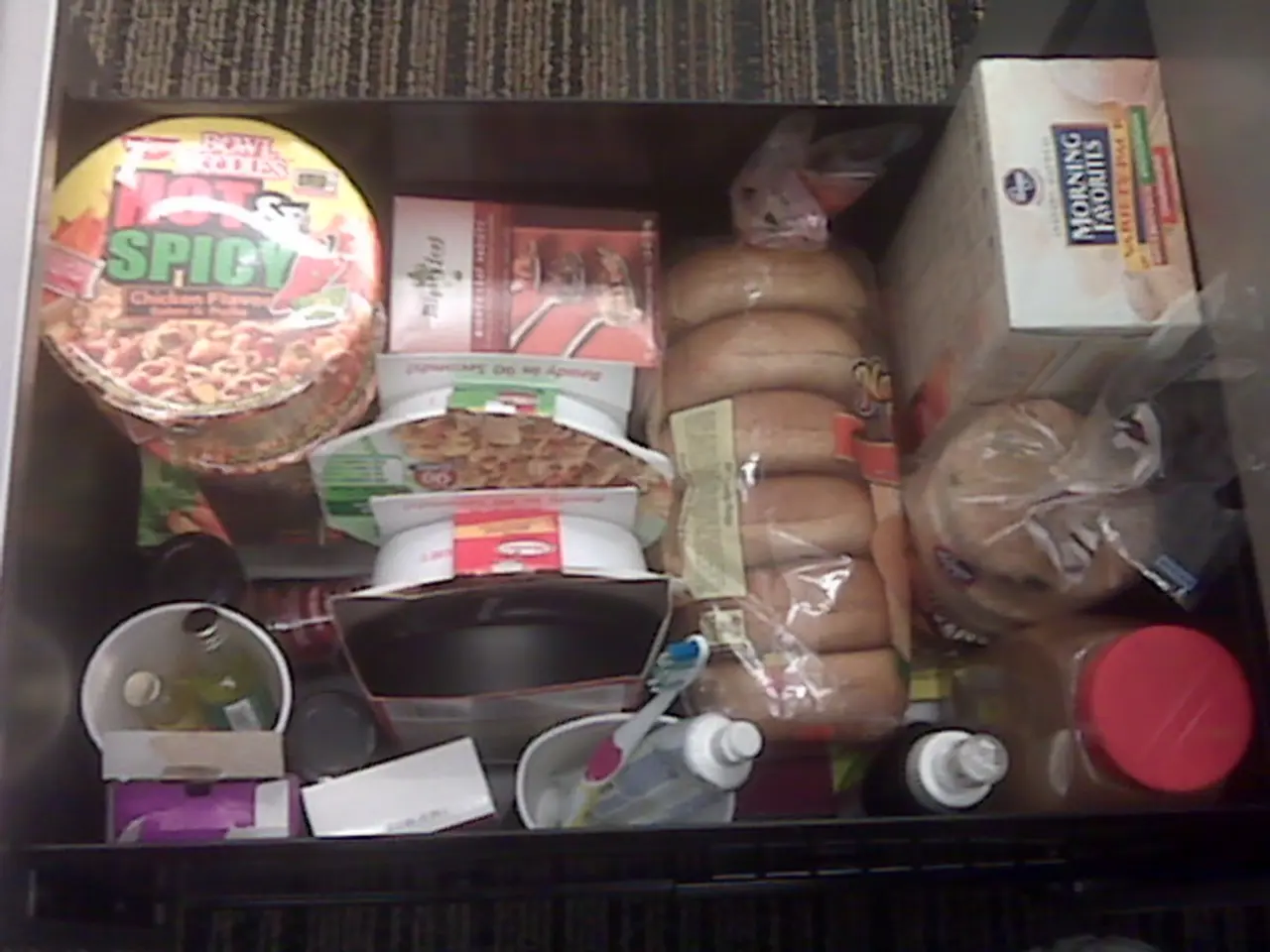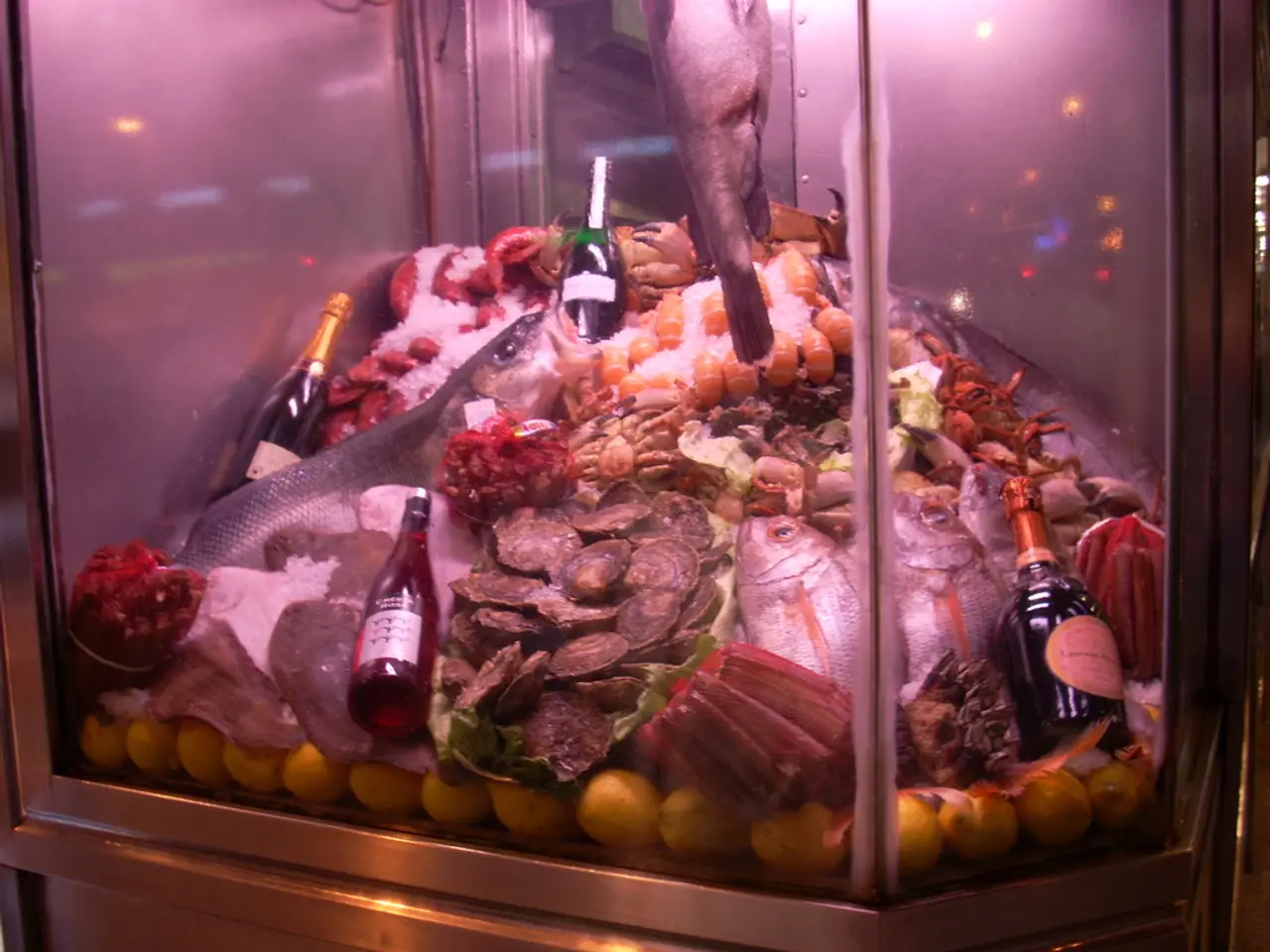Variety Food Options for a Bearded Dragon's Meals to Maintain Diet Diversity:
Bearded dragons, popular reptile pets known for their distinctive appearance and friendly demeanour, require a balanced diet to thrive. This diet primarily consists of a variety of leafy greens, vegetables, and insects.
These scaly creatures are omnivores, meaning they eat a wide range of foods. Silkworms, mealworms, and various live insects provide them with essential protein and polyunsaturated fats. However, leafy greens and vegetables offer vital vitamins, minerals, and calcium that are crucial for their health.
Collard greens and dandelion greens are excellent sources of calcium, essential for bone health. Mustard greens offer a wealth of vitamins A, C, and K, along with immune system support. Bok choy provides vitamins A and C and moderate calcium, making it a valuable addition to their diet.
Leafy greens like Swiss chard contain vitamins A, C, K, iron, and fibre, but their high oxalate content means they should be fed in moderation to prevent calcium absorption issues.
Vegetables such as carrots, courgettes (zucchini), and parsnips add colour, variety, and essential nutrients to a bearded dragon's diet. Carrots should be grated or shaved into small pieces to aid digestion, while courgettes, with their high water content, are ideal for warmer conditions.
However, it's important to avoid certain foods. Avocado, for instance, contains persin, a toxin harmful to bearded dragons, and high oxalate levels that disrupt calcium absorption. Dairy products should also be avoided as bearded dragons are lactose intolerant and can suffer from serious digestive issues.
To ensure proper nutrition and prevent metabolic bone disease, calcium supplements such as calcium powder with vitamin D3 are recommended. These supplements should be provided alongside a balanced diet that includes insect protein and appropriate supplements.
Insects can be offered in various forms, including live, frozen, dried, or freeze-dried. Crickets are a common food source, while butterworms, the larvae of the Chilean moth, make a great treat.
Bearded dragons can live for eight to 12 years with the right diet and living conditions. With this comprehensive guide, pet owners can ensure their bearded dragons receive a nutritious and varied diet, promoting their overall health and happiness.
- Bearded dragons, popular for their distinct appearance and friendly demeanor, are omnivores that require a balanced diet to thrive.
- Silkworms, mealworms, and various live insects offer essential protein and polyunsaturated fats for bearded dragons, while leafy greens and vegetables provide vital vitamins, minerals, and calcium.
- Collard greens, dandelion greens, mustard greens, and bok choy are excellent options for promoting the health of bearded dragons due to their rich nutritional profiles.
- Leafy greens like Swiss chard offer vitamins A, C, K, iron, and fiber but should be fed in moderation due to their high oxalate content that can interfere with calcium absorption.
- Vegetables such as carrots, courgettes (zucchini), and parsnips add variety and essential nutrients to a bearded dragon's diet, with precautions taken for carrots to aid digestion and courgettes for their high water content.
- To ensure proper nutrition, calcium supplements such as calcium powder with vitamin D3 are recommended, and it's important to avoid foods like avocado and dairy due to toxins and lactose intolerance that can harm bearded dragons.




